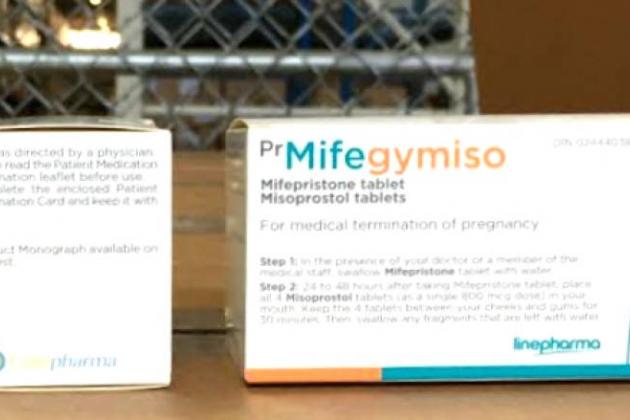
Six out of 10 Canadian provinces offer universal coverage for the abortion pill Mifegymiso, but Saskatchewan’s Ministry of Health confirms it’s not looking at joining them.
In an email to CBC News, a ministry spokesperson said Mifegymiso or RU-486 is covered the same way as other prescription medications in the province.
“Someone who’s located in Alberta now has better access to abortion. Someone in Saskatchewan still has very patchy access to abortion,” explained Frederique Chabot, director of Health promotion for Action Canada for Sexual Health and Rights.
Mifegymiso, or more commonly called the abortion pill, is a two-drug combination that induces a medical termination of a pregnancy.
After some review, the provincial government added the drug to its formulary last fall, making it eligible for cost coverage effective Sept. 5, 2017
On its own, the ministry estimates the drug costs around $360.
How much of a prescription is covered by the province’s drug plan differs from patient to patient, depending on factors like a patient’s income, with registered low income earners being eligible to pay $2 for a prescription.
From last September to the end of March 2018, the ministry said 178 prescriptions of Mifegymiso have been dispensed through pharmacies, 56 of which were covered either fully or partially under the provincial program.
“Any unpaid portion of a prescription claim may be paid for by a third-party insurance provider (such as a benefit program at work or post-secondary school),” a spokesperson wrote in an email to CBC.
Saskatoon Sexual Health executive director Heather Hale said the cost can be prohibitive.
Hale said between five and 15 people a week use the clinic to find out information about abortion services, and staff talk to patients about Mifegymiso.
“We let folks know that it’s around $400 and then we try to work with them to see if there’s a way to get it covered.”
“I wish it was accessible to everyone. So if you don’t have private insurance or you’re not covered by another plan it can be a barrier,” Hale said, adding people should have options.
Currently, British Columbia, Alberta, Ontario, Quebec, New Brunswick and Nova Scotia cover the drug through health plans.
“You get your prescription, you go to the pharmacy and you simply have to show your health card to get your prescription for free,” Chabot said.
She, along with other advocates and doctors, believes Mifegymiso can close the gap in access to abortion services in rural and remote parts of Canada by allowing patients to access it through a family physician instead of having to travel to urban centres.
The ministry said that since Sept. 5, 2017 to the end of March, it’s recorded around 1,270 abortions, including both surgical and medical procedures.
The vast majority of abortions are done surgically, Chabot explained.
She believes the proportion of abortions done surgically compared to medically would change “quite rapidly” over time if Mifegymiso was covered universally.
“People want access to medical abortion. They want that choice.”
New Brunswick recorded fewer surgical abortions since it began offering Mifegymiso free of charge in July 2017.